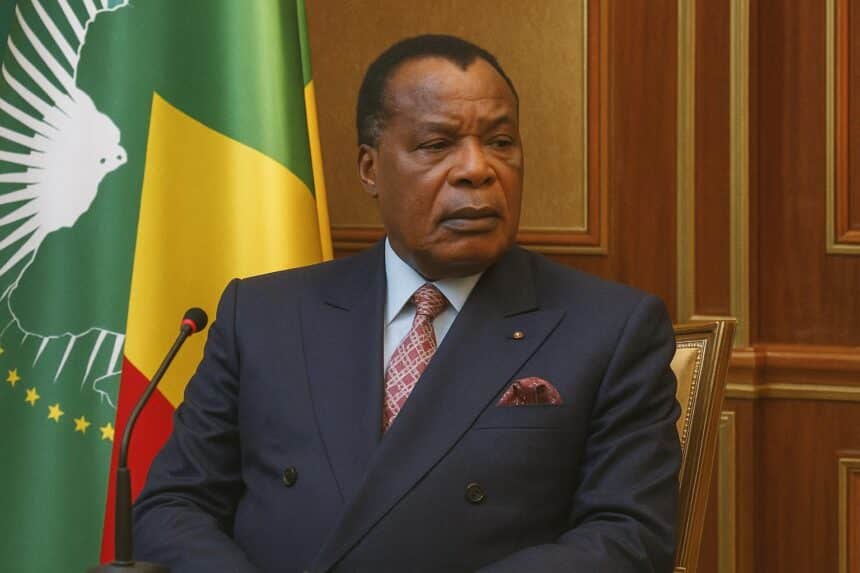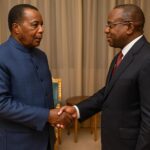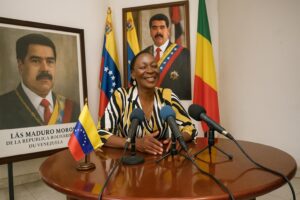Brazzaville’s Diplomatic Stewardship
When President Denis Sassou Nguesso addressed the African Union Peace and Security Council on 24 July, the veteran Congolese statesman did more than issue a routine statement. As chair of the AU High-Level Committee on Libya, he reminded peers that Brazzaville has carried the Libyan dossier for fourteen years, often away from media glare yet with steadfast persistence. His expression of “deep concern” over the July escalation in Tripoli echoed earlier communiqués but, according to diplomats familiar with the closed session, carried an unspoken urgency: the window for a purely political settlement is narrowing (AU Secretariat, 2024).
The Reconciliation Charter Roadmap
Central to Sassou Nguesso’s intervention is the draft Inter-Libyan Reconciliation Charter, negotiated in discreet rounds in Brazzaville, Benghazi and Tunis over the past year. The text, now slated for signature on 14 February 2025 in Addis Ababa, blends traditional mechanisms of tribal mediation with modern power-sharing clauses inspired by the 2015 Skhirat Agreement. According to an adviser to the Congolese presidency, the charter’s originality lies in binding timelines for constitutional revision and synchronised presidential and legislative elections within eighteen months of ratification. Analysts at the Institute for Security Studies argue that such sequencing could reduce the incentives for factional spoilers, provided external actors align their agendas (ISS Policy Brief, 2024).
Security Flashpoints and Regional Ramifications
The optimism of the roadmap competes with a deteriorating security picture. Violent clashes in May between the Forty-Fourth Infantry Brigade and the Stabilisation Support Apparatus left at least fifty combatants dead and re-exposed the capital’s fragmented command structures. The United Nations Support Mission in Libya warns that militia payrolls are swelling again, financed by competing Central Bank factions and opaque hydrocarbon advances (UNSMIL Report, 2024). For Brazzaville, the concern is not merely humanitarian. A prolonged security vacuum radiates instability southward along trans-Saharan trafficking routes that reach northern Congo, threatening to upend already fragile Sahelian corridors.
Continental Consensus and International Support
Ugandan President Yoweri Museveni, current chair of the Peace and Security Council, opened the virtual session by lamenting that “the guns of 2011 still echo.” His comment, though stark, underscored a rare continental consensus: African solutions must anchor the process. Mohamed Ali Youssouf, Commissioner for Political Affairs, Peace and Security, castigated “predatory” armed groups for sabotaging negotiations, while Libyan Presidential Council head Mohamed El Menfi praised the AU’s neutrality and urged the United Nations and European Union to marshal resources behind the Charter. In diplomatic corridors, European envoys concede that the AU possesses convening power often lacking in their own initiatives, yet financial backing remains contingent on demonstrable progress (European External Action Service briefing, 2024).
Prospects toward Addis Ababa 2025
Between now and February 2025, the High-Level Committee plans shuttle diplomacy among Misrata, Tobruk and Sebha, coupled with technical workshops on disarmament and electoral logistics. Congolese Foreign Minister Jean-Claude Gakosso hinted that Brazzaville may host an inter-militia confidence-building retreat before year-end. Success, however, will depend on harmonising Libya’s dual central bank leadership, convincing regional patrons to curtail arms transfers and insulating the process from the global contest over energy supplies. Yet observers note a subtle shift. Unlike previous blueprints, the Charter enjoys embryonic endorsement from both Marshal Haftar’s Libyan National Army and the Tripoli-based Government of National Unity, signaling cautious convergence.
A Calculated Yet Fragile Momentum
In his closing remarks, Sassou Nguesso quoted an old Congolese proverb: “A river’s calm surface hides restless depths.” The aphorism captures the delicate equilibrium of Libyan diplomacy today. Brazzaville’s orchestration, praised by UN-AU Joint Special Envoy Abdoulaye Bathily for its “quiet vigilance” (personal communication, 2024), demonstrates that mid-sized African states can wield strategic convening influence. Whether the charter ceremony in Addis Ababa becomes a milestone or a missed opportunity will hinge on sustained multilateral accompaniment, disciplined security sector reform and, crucially, the Libyan parties’ own political will. For now, the AU’s river remains navigable—if its pilots keep a steady hand on the tiller.




















